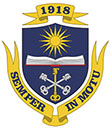|
VORONEZH STATE UNIVERSITY
GOVERNMENT OF THE VORONEZH REGION
ASSOCIATION OF EUROPEAN STUDIES
International Scientific Conference
«European identity and political challenges: old concept, new vision»
Voronezh, 4-7 July 2016
Most discussions on European identity start with idea that political community needs a common set of values and references to ensure its coherence and guide its actions. Europe faces a serious menace to lose its own civilization and cultural identity.
Nowadays we are observing the value-laden discord in the EU-Russia relations. One of the causes of this phenomenon is the lack of mutual understanding between the EU and non-EU countries about European identity and what it means “being a European”.
To analyse the phenomenon of European identity and to find the ways how to overcome contradictions in perception “to be European”, to develop intercultural communications and comparative evaluation of similarities and differences of views from European, Russian experts in the field of EU studies and to promote European idea the International Scientific Conference “European identity and political challenges: old concept, new vision” was held at Voronezh State University from 4 to 7 July 2016.
The event was organised by Voronezh State University in association with the Government of Voronezh region in the framework of Erasmus+ project under Jean Monnet Actions “ProEU: To be European in Russia: pro and contra”.
The following key issues were discussed during the event:
- • current perception of Europe and its borders;
- • current vision of Europe from the perspective of the European and non-European citizens;
- • evaluation of European values and their evolution;
- • understanding of what it means to be European;
- • place of Russia in Europe from historic and modern points of view;
- • role of education and international mobility in perception of being European in Russia;
- • identification of obstacles and benefits in being European in Russia.
The conference attracted the scientists specializing in European studies, International Relations, Politology, International Law, Sociology and History from renowned universities and research centres: Catholic University of Leuven (Belgium), University of Birmingham (UK), University of Seville (Spain), Institute of Political Studies of Bordeaux (France), Eötvös Loránd University (Hungary), National University “Odessa Law Academy” (Ukraine), National Institute for Economic Research, Academy of Sciences of Moldova (Moldova), Transnistrian Shevchenko State University (Moldova).
The event was also attended by the researches from a number of Russian regions – from Tomsk to Kaliningrad, St. Petersburg to Simferopol (including such cities as Moscow, Perm, Rostov-upon-Don, Ivanovo, Krasnodar, Izhevsk, Saransk and Nizhnevartovsk).
The programme was comprised of the following panel sessions:
- • European Identity: Conceptual and Civilization Aspects
- • European Identity: crisis or challenges?
- • Identity via Education
- • Geographical, political and cultural frontiers of Europe
- • Round table discussion “To be European in Russia: pro and contra”
The meeting started with the welcome addresses by Oleg Belenov, the Vice-Rector for international cooperation and economic development of Voronezh State University, Vladimir Popov, Vice-governor of the Voronezh region, and Alexey Gromyko, Director of Institute of Europe, Russian Academy of Science, President of Association of European Studies.
In his speech, the Vice-governor emphasized the relevance of the agenda of the conference for Russia and Europe in light of the complicated political situation.
“We do not take advantage of the opportunities for cooperation between Russia and European countries fully. In this regard, the government of the Voronezh region is willing to support initiatives aimed at encouraging collaboration in economic, cultural and educational spheres”.
Alexey Gromyko, President of Association of European Studies, stressed the importance of organizing such largescale international events.
“Voronezh State University is one of the leaders in promoting European studies. Scientists have advanced considerably in this field over the last 25 years. I guess Association of European Studies is a good indicator showing how things are changing nowadays. It is comprised of twenty five regional branches and there are plans to extend. We are grateful to our partners in many countries for their active participation.”
The welcome address was also delivered on behalf of the European Commission that expressed their hopes for further successful and fruitful collaboration.
On the second day the conference was opened by Dmitry Yendovitsky, Rector of Voronezh State University, who emphasized the significance of research in the field of European studies for the modern society and said that European identity should be analysed in accordance with the rapidly changing world.
The colleagues discussed the ways of further cooperation and carrying out projects in the framework of the European programmes. Prof. Katlijn Malfliet pointed out that the participation of Catholic University of Leuven in the project enabled KUL to exploit the scientific potential and establish effective partnership with Voronezh State University.
|




